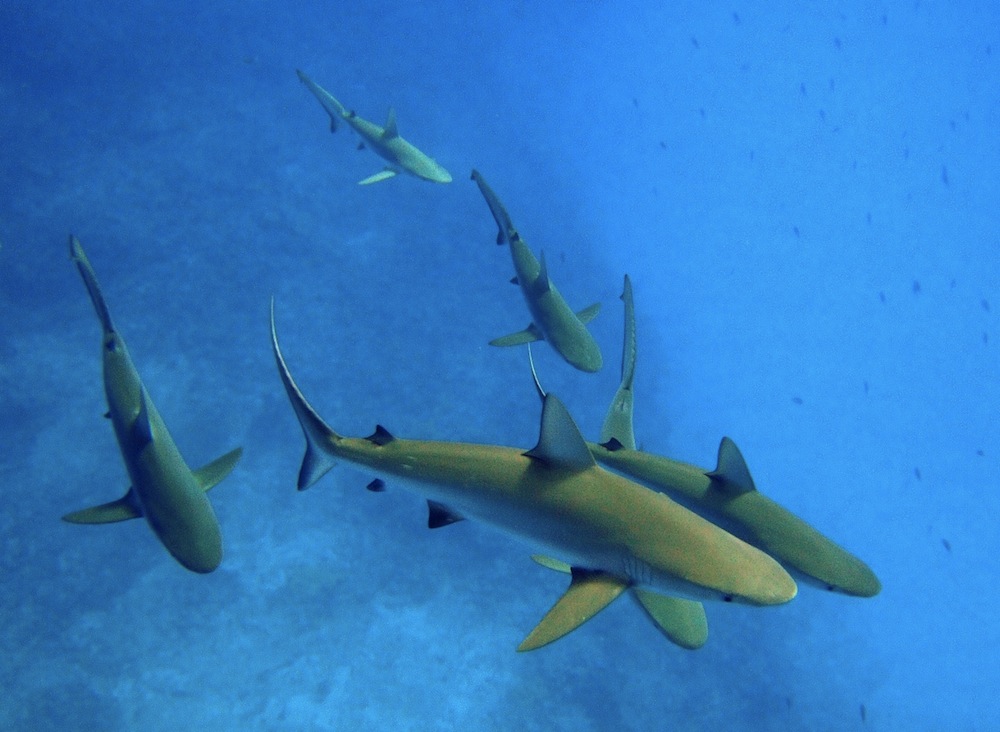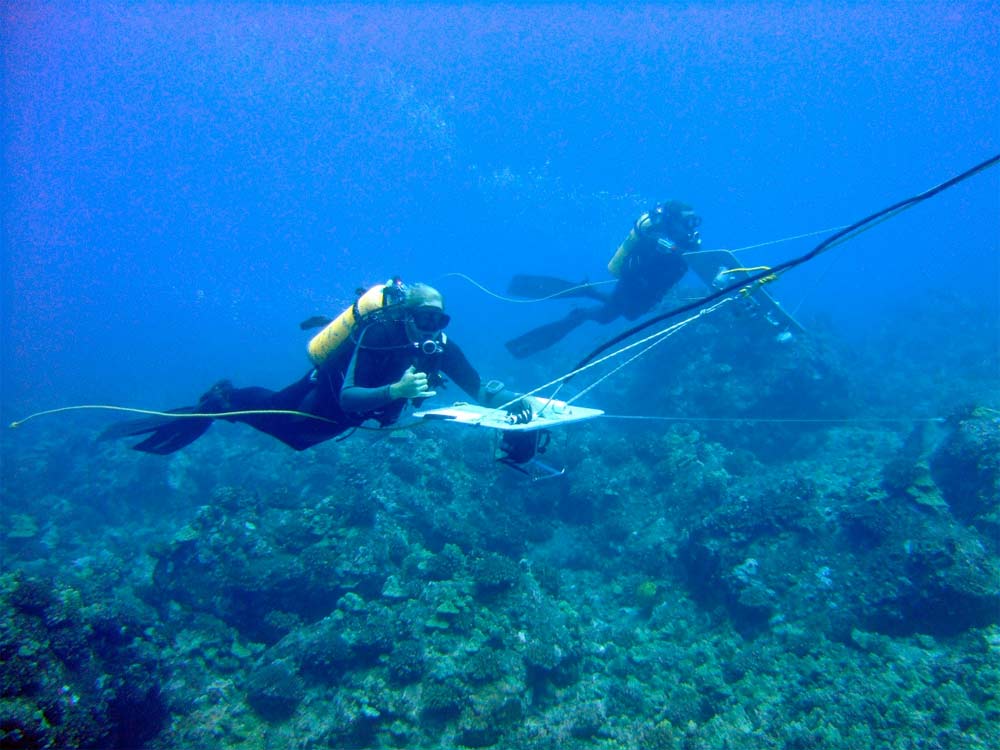Pacific Reef Sharks Vanishing Near Populated Islands

As many as 90 percent of reef sharks have disappeared from reefs near populated islands, a new study finds.
The research is the first to provide a large-scale estimate of reef sharks in the Pacific, a group of species that includes the gray reef shark, the whitetip reef shark and the tawny nurse shark.
"We estimate that reef shark numbers have dropped substantially around populated islands, generally by more than 90 percent compared to those at the most untouched reefs," said study leader Marc Nadon, a doctoral candidate at the University of Miami's Rosenstiel School of Marine & Atmospheric Science. "In short, people and sharks don't mix."
Nadon and his colleagues pulled shark sighting data from more than 1,607 dives at 46 reefs in the central-western Pacific, which included reefs near the Hawaiian islands and American Samoa as well as extremely isolated reefs nearly devoid of human influence. Though eight species of shark were seen on the dives, the researchers excluded sharks, such as hammerheads, that aren't dependent on reefs. That left them with five shark species to tally: gray reef sharks, blacktip reef sharks, whitetip reef sharks, Galapagos sharks and tawny nurse sharks. [On the Brink: A Gallery of Wild Sharks]

Combining that data with information on human population, habitat complexity, availability of food and sea-surface temperatures, the researchers created models comparing the numbers of sharks at pristine versus human-impacted reefs.
"Around each of the heavily populated areas we surveyed — in the main Hawaiian Islands, the Mariana Archipelago, and American Samoa — reef shark numbers were greatly depressed compared to reefs in the same regions that were simply [farther] away from humans." Nadon said in a statement. "We estimate that less than 10 percent of the baseline numbers remain in these areas."
The devastation of sharks in areas near human civilization could be the result of illegal fishing, incidental killing or fishing for sport, the researchers report Friday (April 27) in the journal Conservation Biology. Human impact on the reef fish that sharks call dinner could also play a role. Human influences were shown to outweigh natural influences, such as warmer water temperatures, the researchers found.
Sign up for the Live Science daily newsletter now
Get the world’s most fascinating discoveries delivered straight to your inbox.
"Our findings underscore the importance of long-term monitoring across gradients of human impacts, biogeographic, and oceanic conditions, for understanding how humans are altering our oceans," said Rusty Brainard, head of the coral reef ecosystem division at NOAA's Pacific Islands Fisheries Science Center, which conducted the shark surveys.
You can follow LiveScience senior writer Stephanie Pappas on Twitter @sipappas. Follow LiveScience for the latest in science news and discoveries on Twitter @livescience and on Facebook.

Stephanie Pappas is a contributing writer for Live Science, covering topics ranging from geoscience to archaeology to the human brain and behavior. She was previously a senior writer for Live Science but is now a freelancer based in Denver, Colorado, and regularly contributes to Scientific American and The Monitor, the monthly magazine of the American Psychological Association. Stephanie received a bachelor's degree in psychology from the University of South Carolina and a graduate certificate in science communication from the University of California, Santa Cruz.









